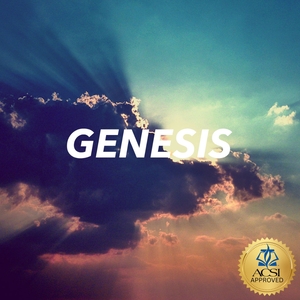Does the Bible say anything about cremation vs. burial?
The Bible makes no mention of cremation specifically. In almost all cases where the disposal of a body is recorded in scripture, burial is the method described. Typically, in the eastern culture, a dead body was first placed in an above-ground tomb (often a cave), and then after a year or more, the dried bones would be removed and placed in a coffin for burial underground.
In at least one notable case, a dead body were burned before burial. King Saul was killed in battle against the Philistines and his body was decapitated. When the Israelites recovered his body from Beth-she'an, they burned it before burial:
1Sam. 31:8 It came about on the next day when the Philistines came to strip the slain, that they found Saul and his three sons fallen on Mount Gilboa.
1Sam. 31:9 They cut off his head and stripped off his weapons, and sent them throughout the land of the Philistines, to carry the good news to the house of their idols and to the people.
1Sam. 31:10 They put his weapons in the temple of Ashtaroth, and they fastened his body to the wall of Beth-shan.
1Sam. 31:11 Now when the inhabitants of Jabesh-gilead heard what the Philistines had done to Saul,
1Sam. 31:12 all the valiant men rose and walked all night, and took the body of Saul and the bodies of his sons from the wall of Beth-shan, and they came to Jabesh and burned them there.
1Sam. 31:13 They took their bones and buried them under the tamarisk tree at Jabesh, and fasted seven days.
In this case, the burning of the body was intended to purify it before burial, and even after the burning, Saul's remains were still buried. In a few other cases, the Lord Himself chose to put sinners to death by fire, but these examples were not cremation of dead bodies but rather death by burning. Apart from these unique examples, burial was the perferred means of disposal for the dead in scripture.
Burial was preferred because Old Testament saints desired to use their death as a testimony of faith in the Living God. For example, the patriarchs all insisted that they be buried in places that reflected the presence of God on Earth and in keeping with their expectations for resurrection in the Promised Land, as the writer of Hebrews reminds us:
Heb. 11:22 By faith Joseph, when he was dying, made mention of the exodus of the sons of Israel, and gave orders concerning his bones.
Joseph gave orders that his bones would be buried in the Promised Land, because he wanted his burial location to reflect his faith in God’s promise of resurrection in the Promised Land. Similarly, Abraham, Isaac and Jacob asked to be buried in the Promised Land since they expected to receive that land as their eternal inheritance in the Kingdom.
It’s important to understand that God’s promises didn’t require the patriarchs to be buried in the land in order to receive it in eternity. Rather, the patriarch chose to be buried in the land as a testimony of their faith. They wanted their death to be a testimony in the same way that their lives had been a testimony, as Hebrews points out:
Heb. 11:8 By faith Abraham, when he was called, obeyed by going out to a place which he was to receive for an inheritance; and he went out, not knowing where he was going.
Heb. 11:9 By faith he lived as an alien in the land of promise, as in a foreign land, dwelling in tents with Isaac and Jacob, fellow heirs of the same promise;
Heb. 11:10 for he was looking for the city which has foundations, whose architect and builder is God.
Heb. 11:13 All these died in faith, without receiving the promises, but having seen them and having welcomed them from a distance, and having confessed that they were strangers and exiles on the earth.
Heb. 11:14 For those who say such things make it clear that they are seeking a country of their own.
Heb. 11:15 And indeed if they had been thinking of that country from which they went out, they would have had opportunity to return.
Heb. 11:16 But as it is, they desire a better country, that is, a heavenly one. Therefore God is not ashamed to be called their God; for He has prepared a city for them.
Abraham and his wife and sons lived as wanderers in the land God gave them because they knew they would not receive it until they were resurrected. So they made no claim to the land in their earthly life because they believed it would only be theirs in the Kingdom. Likewise, they chose to be buried in the land as a testimony that they would rise and live in that land again.
For these people, burial was an important testimony of their faith in the resurrection. Cremation cannot communicate the same message. So, does the patriarchs’ preference of burial become a requirement for the New Testament believer? Are we required to be buried instead of cremated?
In a word, no. In the Bible, we must differentiate between description and prescription. Many events and actions are described in scripture, but these descriptions do not automatically become a prescription for the New Testament believer. Only if something is specifically ordered for us does it become a requirement for us.
In this case, there is no prescription for burial in the scripture. Therefore, we are free by our liberty in Christ to choose burial or cremation. Nevertheless, some might argue that burial more clearly communicates faith in the resurrection, should we desire to use our death as a testimony of our faith. Again, this choice is personal and we have liberty to decide as we feel led.
Scripture quotations taken from the (NASB®) New American Standard Bible®, Copyright © 1995, 2020 by The Lockman Foundation. Used by permission. All rights reserved. www.lockman.org








